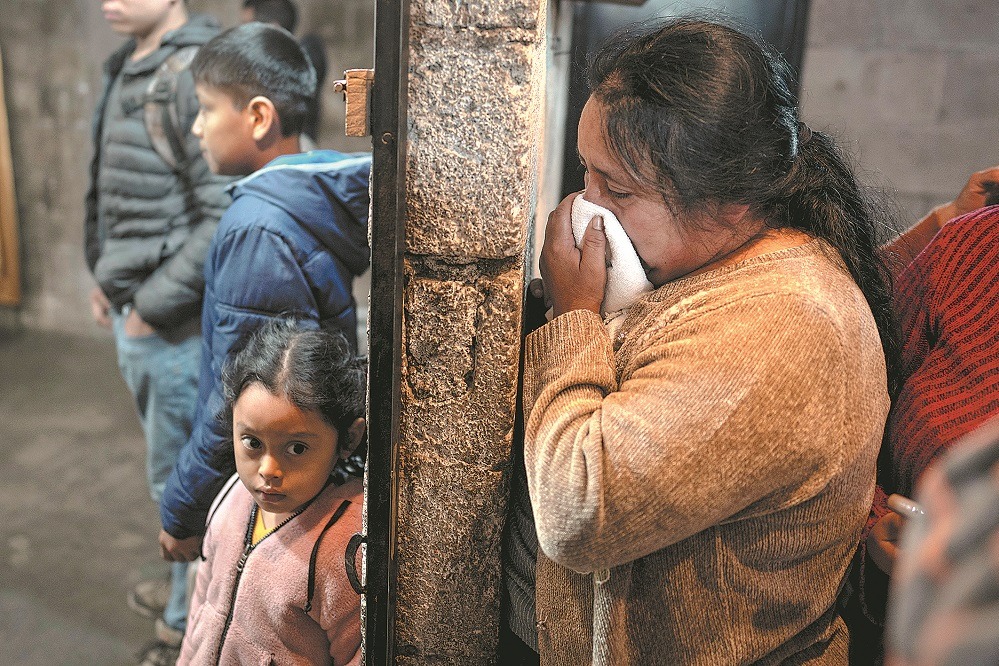French left secures unexpected budget win
By Arif in Paris | chinadaily.com.cn | Updated: 2024-11-06 17:40
In a National Assembly abandoned by centrist and right-wing lawmakers, an additional 20 billion euros ($21.8 billion) was secured on Monday to bolster France's social security system.
In a surprising move, left-wing parties won the vote on the revenue side of the 2025 Social Security Financing Bill, or PLFSS.
The development, enabled by the far-right National Rally, or RN, abstaining from the vote, exposed fractures in President Emmanuel Macron's ruling coalition.
Despite Prime Minister Michel Barnier's plan to now invoke article 49.3 of the Constitution to reinstate the original bill, the result highlights the administration's vulnerability.
Budget Minister Laurent Saint-Martin said on RTL radio on Tuesday: "This clearly shows an alliance between the (New Popular Front left-wing alliance known as the NFP) and RN. The RN's abstention has once again enabled the passing of tens of billions in additional compulsory levies. We saw this during the Finance Bill, and now we're seeing it repeated in the social security budget. It's undeniable."
The vote will now force the government to address contentious plans to cut national health insurance, hospital funding, and support for nursing homes.
Socialist MP Jerome Guedj called for reversing the order of debates to ensure discussion on Article 23 – on pension freezes – by the deadline of midnight on Nov 5. Amendments proposed by the left include 20 billion euros in extra funding. The money would come from new taxes on dividends, profit-sharing, employee shareholding, and capital gains from share sales that would raise 11 billion euros. Additionally, an increase in the tax on capital income, from 9 percent to 12 percent, would contribute 5 billion euros and stricter penalties for undeclared work would raise 1 billion euros. A tax on added sugar would add further funds.
Hadrien Clouet, an MP from the far-left La France Insoumise, or LFI, celebrated the outcome, saying: "Barnier wanted to raise 15 billion euros. Barnier wanted to make 15 billion in savings on the backs of patients and carers and we found him 20 billion, which means he still has 5 billion to spend on nursing homes and hospitals."
The left also secured an appendix to the bill that paves the way for potentially repealing the nation's pension reforms.
Jean-Luc Melenchon, leader of the LFI, wrote on the social media platform X: "This evening, the National Assembly has just adopted the objective in principle of repealing retirement at 64. A decision must now be taken. A threshold has been crossed."
The Socialist Party, or PS, conceded that while the vote was unlikely to alter the budget's final form, it showcased the possibility of opponents of the government forming a majority, albeit a narrow one. The PS emphasized that the budget's imperfections, marked by rejected amendments, were overshadowed by the demonstration of parliamentary strength.
In contrast, the session underscored the fragility of the coalition between Macron's party and the liberal-conservative Republicans, or LR. Only 39 out of 94 MPs in Gabriel Attal's centrist group attended Monday's vote, and only 18 out of 47 from LR were present.
One Macronist MP vented: "It's bizarre to vote on extremely important things on a Monday evening." The lawmaker noted the absence of MPs engaged in constituency work.
Critics within Macron's coalition decried the vote's impact.
DR group MP Thibault Bazin commented: "You have created taxes and charges totaling almost 17 billion euros, the victims of which will be the working middle classes."
Horizons party MP Francois Gernigon agreed, branding the budget "a direct attack on the attractiveness of our economy".
Pierre Cazeneuve, another Macronist, criticized the RN's actions when speaking to investigative online site Mediapart, stating: "The attitude of the RN is completely absurd. They say they're against taxes and they let a PLFSS pass with 20 billion more taxes. It's a huge mistake!"
The move hints at potential cracks in the tacit understanding between RN and the presidential coalition, signaling challenges for the government in passing future legislation.
The 2025 budget debate has not only laid bare political divisions but also underscored the strength of a united left-wing opposition keen to challenge the government's fiscal agenda.
























